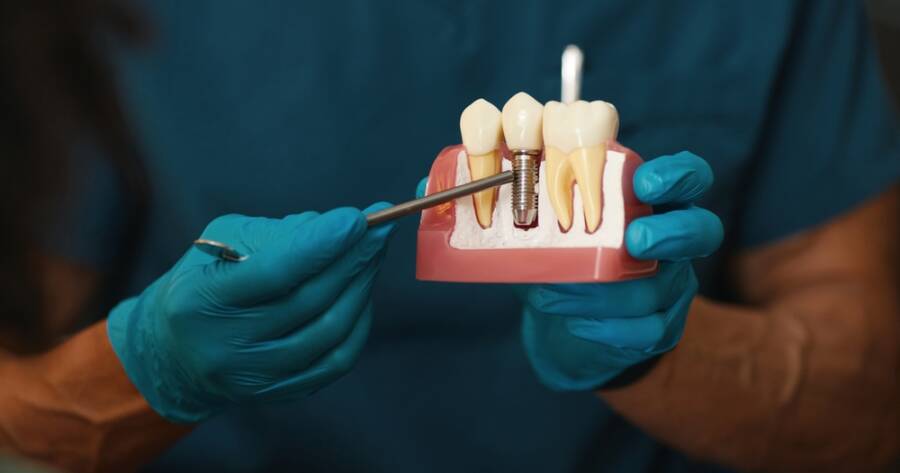Dental implant clinical trials are pivotal in advancing oral healthcare by exploring innovative procedures and materials. Top trials ensure ethical standards while offering participants access to groundbreaking treatments. From computer-aided surgeries to mini implants, the research not only refines existing methods but also paves the way for enhanced patient care and treatment outcomes.
The Role of Dental Implant Clinical Trials
Dental implant clinical trials play a crucial role in advancing dental care by exploring new procedures, materials, and technologies. They provide an opportunity for researchers and clinicians to refine existing methods and discover new solutions to enhance patient outcomes. These trials adhere to strict safety and ethical standards, ensuring the safety and well-being of participants while contributing to the field of dentistry with groundbreaking innovations.
Participants can gain access to novel treatments that are yet to be widely available, offering them the potential for better dental health. In recent times, studies have focused on a variety of topics, including antiseptics for dental implants and advanced X-ray technology, illustrating the diverse approaches within this research area.
Innovative Approaches in Implant Dentistry Research
The domain of implant dentistry is constantly evolving, thanks to the myriad of clinical trials that investigate innovative procedures and technologies. Notably, new methodologies such as computer-aided implant surgery are compared to traditional freehand techniques to determine which offers greater precision and better patient outcomes. These comparisons are crucial for developing guidelines that benefit both dentists and patients by ensuring the most accurate placement of implants.
Additionally, zirconia implants are being studied for their success in longevity and restoration, highlighting their potential as a favorable option in dental restorations over a significant period. This pursuit of innovation not only improves existing practices but also opens new avenues for enhanced patient care.
Importance of Safe and Ethical Standards in Clinical Trials
While the promise of cutting-edge treatments is alluring, it is essential that all dental implant clinical trials are conducted under strict ethical guidelines. This ensures the safety and welfare of participants, a factor that is non-negotiable in clinical research. The trials are meticulously monitored by institutional oversight bodies and led by experienced research coordinators who focus on preserving participant comfort.
Moreover, studies focusing on peri-implantitis and unique devices like CATER and Laser-Lok demonstrate the diversity and commitment to participant safety in the research community. Such trials contribute to the progression of dental science while maintaining high ethical standards.
Emerging Implants and Procedures
Several innovative implants and procedures are coming to the forefront through ongoing research. For instance, a new implant procedure that requires no drilling has been introduced, providing a less invasive alternative for patients. This implant is customized to fit the tooth socket exactly and is placed a short period after tooth removal, a method that may revolutionize dental implant approaches.
This investigational device under federal regulation offers participants the implant and restoration at no cost, providing them with cutting-edge dental care without financial burden. Such studies push the envelope, creating new possibilities for the integration of innovative techniques in standard practice.
Advantages of Mini Dental Implants
Mini dental implants are gaining traction due to their adaptability and less invasive nature, especially in cases with limited bone volume. These smaller implants offer a viable solution in various scenarios, such as in supporting overdentures or in aesthetic zones where traditional implants may not be feasible. They provide satisfactory clinical outcomes with reduced surgical time and lower costs.
The long-term success and minimal complications associated with mini implants make them a promising option for many patients, particularly in geriatric populations or for those with atrophic ridges. Their role in modern implant dentistry continues to grow, providing more patients with access to effective dental care.
Learn More About Dental Implant Clinical Trials
As dental implant technology advances, participating in or understanding clinical trials can offer valuable insight into the future of oral healthcare. These trials illuminate potential benefits and innovative solutions available to patients who might otherwise be limited by conventional treatment options. By engaging with ongoing research, patients and practitioners alike can stay informed about new techniques, enhancing the overall quality of dental care.
The continued emphasis on rigorous safety standards ensures these trials contribute positively to the field of dentistry, supporting advancements that can lead to more effective and efficient treatment outcomes. Exploring the options and findings of dental implant clinical trials can illuminate pathways to better dental health and improved quality of life.
Sources
Explorations in Dental Implant Trials
Innovations in Implant Dentistry
Ethical Standards in Clinical Trials

